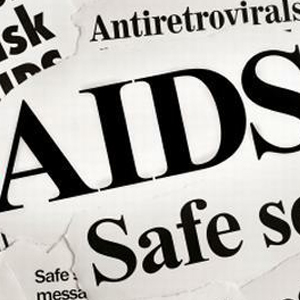
In an analysis of the state of the global fight against the human immunodeficiency virus (HIV) and Aids, the advocacy group ONE said that while some African countries had reached a "tipping point" against the disease, others lag far behind.
More than 35 million people worldwide are infected with HIV, which causes Aids, and 25 million are in sub-Saharan Africa. Yet within Africa, rates of HIV and Aids vary widely. "Our analysis shows major distinctions between leaders and laggards, and that a one-size-fits-all approach to tackling Aids on the continent does not make sense," said Erin Hohlfelder, ONE's global health policy director.
"It's no longer useful to talk about Aids from a continent-wide perspective," she said in a telephone interview. "It's time to retire the phrase, 'Aids in Africa'." ONE is an advocacy group, co-founded by the U2 front man and campaigner Bono, fighting to end poverty and preventable disease, particularly in Africa.
According to its report, 16 countries in sub-Saharan Africa have reached what experts describe as the "beginning of the end of Aids" – a point when the total number of new HIV infections is lower than the number of patients newly receiving Aids treatment in the same year.
Significant progress
Leading the pack are countries such as Ghana, Malawi and Zambia, where governments, international donors and civil society leaders have worked together, the report said, and as a result have made dramatic progress against HIV/Aids.
Yet at the same time other countries – such as Cameroon, Nigeria and Togo – lag far behind, often hampered by a lack of political will to tackle HIV, inadequate funding, poor delivery systems and stigma against marginalized populations where HIV infections are more frequent. "Increasingly, both in terms of how we talk about the disease and also how we fight it, it makes more sense to look country by country, even community by community," said Hohlfelder.
"Then we can think about what progress we've made, what challenges remain and how best to put resources into tackling them." Looking globally, the ONE report found significant progress toward achieving "the beginning of the end of Aids".
"If current rates of progress continue, the world can reach that milestone by 2015," it said.
Lack of money
Hohlfelder cautioned, however, that getting there is "not a foregone conclusion", but depends on donors and affected countries doing more together to ensure HIV treatment and prevention services reach all those who need them.
The ONE report said one of the most serious problems for the global HIV/Aids fight is a lack of money.
According to UNAIDS, there is a $3 to $5 billion shortfall in the annual $22 to $24 billion needed to turn the tide against the disease.
Funding from international donors for Aids has flatlined, and besides that, the majority of African governments are also not meeting their commitments to spend 15% of their budgets on health. "In many ways, the Aids fight is struggling as a result of its successes," Hohlfelder said. "Because it is no longer perceived as a global health emergency, but rather a chronic and manageable disease, the fight has lost some of its political momentum."




 Publications
Publications
 Partners
Partners















